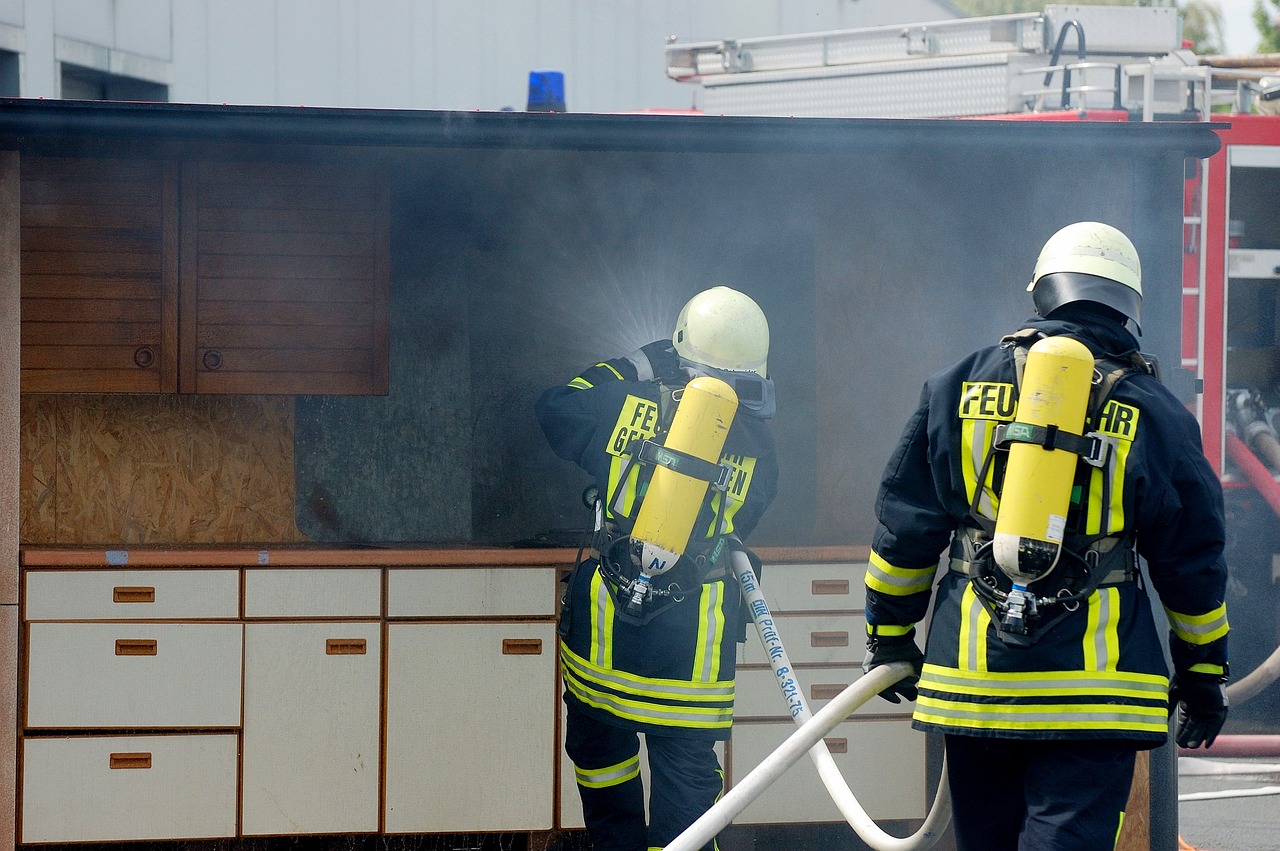
Kitchen Fire Safety: Prevention, Response, and Essential Tips
Learn about kitchen fire safety to prevent accidents and protect your home and loved ones. Discover essential tips for fire prevention, appropriate response in case of a kitchen fire, and ways to keep your kitchen safe. Prioritize fire safety by understanding potential hazards, having fire safety equipment, and following safety guidelines.
Introduction:
Kitchen fires can be frightening and dangerous, but with proper knowledge and precautions, they can be prevented and managed effectively. The kitchen is a common area where fires can originate due to various factors such as cooking mishaps, electrical malfunctions, or flammable materials. Understanding kitchen fire safety is essential for protecting yourself, your home, and your loved ones. In this article, we will explore important tips for fire prevention, appropriate response in case of a kitchen fire, and ways to keep your kitchen safe. By prioritizing kitchen fire safety, you can create a secure cooking environment and minimize the risk of kitchen fires.
Outline Table:
| Heading |
|---|
| 1. Understanding the Risks of Kitchen Fires |
| 2. Fire Prevention in the Kitchen |
| 3. Proper Response to a Kitchen Fire |
| 4. Essential Fire Safety Equipment |
| 5. Safety Guidelines for Cooking |
| 6. Frequently Asked Questions (FAQs) |
| 7. Conclusion |
Understanding the Risks of Kitchen Fires:
The kitchen is a high-risk area for fires due to the presence of heat sources, flammable materials, and cooking activities. Common causes of kitchen fires include unattended cooking, overheating oil or grease, electrical malfunctions, and combustible materials near heat sources. Understanding these risks is crucial in implementing preventive measures and maintaining fire safety in the kitchen.
Fire Prevention in the Kitchen:
Preventing kitchen fires starts with practicing good fire safety habits. Never leave cooking unattended, especially when using high heat or open flames. Keep flammable materials, such as oven mitts, towels, and curtains, away from heat sources. Regularly clean grease and food residue from cooking surfaces and appliances to reduce the risk of ignition.
Proper Response to a Kitchen Fire:
In the event of a kitchen fire, it’s important to respond swiftly and appropriately. If a small fire occurs, use a fire extinguisher specifically designed for kitchen fires to smother the flames. If the fire is larger or spreading quickly, evacuate the area immediately, close the door to contain the fire if possible, and call emergency services. Never attempt to extinguish a large fire on your own.
Essential Fire Safety Equipment:
Equipping your kitchen with essential fire safety equipment is crucial for effective fire prevention and response. Ensure you have a fire extinguisher rated for kitchen fires within reach. Install smoke detectors in the kitchen and adjacent areas, and regularly test and replace batteries. Additionally, having a fire blanket and a fire-resistant kitchen rug or mat can help contain small fires and prevent their spread.
Safety Guidelines for Cooking:
Adhering to safety guidelines while cooking can significantly reduce the risk of kitchen fires. Keep pot handles turned inward to prevent accidental spills or knocks. Use oven mitts or pot holders when handling hot pots and pans. Regularly clean and maintain cooking appliances, ensuring they are in good working condition. Follow recipe instructions and recommended cooking temperatures to prevent overheating or burning.
Frequently Asked Questions (FAQs):
Q: How often should I replace the batteries in my smoke detectors? A: It is recommended to replace the batteries in your smoke detectors at least once a year or whenever the low-battery alarm sounds. Regularly testing the smoke detectors and ensuring they are in proper working condition is crucial for fire safety.
Q: What type of fire extinguisher should I have in the kitchen? A: A fire extinguisher specifically designed for kitchen fires is ideal. Look for a Class K fire extinguisher, which is effective against fires involving cooking oils and fats. Familiarize yourself with its proper use and maintenance.
Q: Can I use water to extinguish a kitchen fire? A: Water should not be used to extinguish a kitchen fire involving oil or grease. Instead, smother the fire with a fire extinguisher, cover it with a metal lid, or use a fire blanket. Water can cause oil or grease fires to spread or create steam, intensifying the fire.
Conclusion:
Kitchen fire safety is essential for protecting yourself, your home, and your loved ones. By understanding the risks, practicing fire prevention measures, knowing how to respond in case of a kitchen fire, and having the necessary fire safety equipment, you can significantly reduce the likelihood of kitchen fires and mitigate their impact. Remember to prioritize fire safety, remain vigilant while cooking, and always be prepared to take appropriate action. With proper precautions and knowledge, you can create a safe and secure cooking environment in your kitchen.

